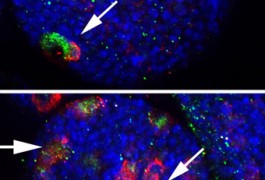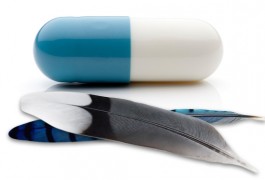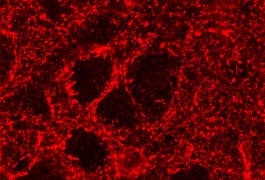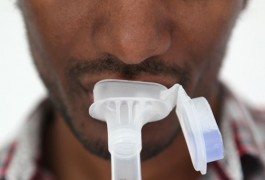Fragile X protein tied to snags in stem cell development
The protein missing in fragile X syndrome is necessary for the proper development of neural stem cells — self-renewing cells that can differentiate into more specialized types, including neurons — according to a paper published in the August issue of Human Molecular Genetics.















